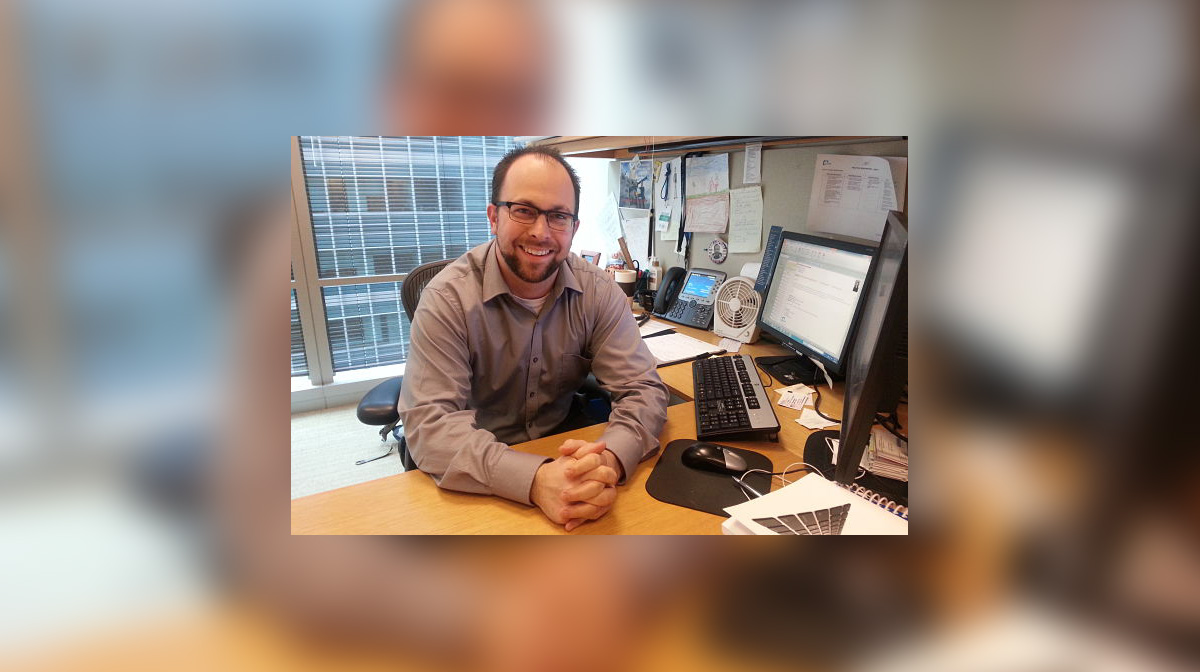A Fortunate Fellow Indeed

Posted on 14 January 2015 by Jesse Medlong
“You cheated the system.” That’s what one of my law school classmates told me as we stood in line to be admitted to our second day of the California bar exam. This accusation arose from my having been selected as one of DLA Piper’s two firm-wide Krantz Fellows for 2014.
The Krantz Fellowship was named for Sheldon Krantz, a former DLA litigation partner and a lion of pro bono. Each year, through a competitive application process, two incoming associates are selected to work exclusively on pro bono matters for their first year. This work is devoted either to a local pro bono signature project or—as in my case—split between a signature project and New Perimeter, DLA Piper’s global pro bono initiative. Mind you, this is all after being hired. That means Krantz Fellows are, in terms of pay and position, first-year associates. And when the fellowship ends, Krantz Fellows are second-year associates. To my knowledge, this opportunity is unique among large firms. So although it sounds cliché, the Krantz Fellowship is the ultimate in doing well while also doing good.
Hence my classmate’s accusation. Because that’s not how it’s supposed to work. At the University of Michigan, where I went to law school, roughly 70% of incoming students report wanting to go into public-interest law, which is broadly defined to include legal work for nonprofits, governments, and international organizations. On exiting, the statistic flips. Only 30% of Michigan Law graduates take jobs in public interest law. Unless we believe that some 40% of each graduating class undergoes a dramatic change of heart, these figures suggest that new lawyers face a kind of Sophie’s choice between making money and making a positive impact in their communities. The Krantz Fellowship—and DLA Piper—spared me that choice.
Don’t get me wrong: I didn’t see myself as “big law” material going into law school. I was enlisted in the Navy for ten years, and I’ve been volunteering in my community since I was a child. So in many ways, my life has been dedicated to service. And that was a big part of why I went to law school. But work in public-interest law is a tough row to hoe—especially for someone with four kids! So I, too, worried over the horns of this apparent dilemma.
But going into a big firm isn’t the same as forsaking service. So although I have always known that pro bono would be an important part of my professional life, what I didn’t always know was whether that commitment to pro bono would mean flying into significant headwinds if I took a job at a firm. My first year at DLA Piper confirms what I suspected when I accepted an offer to work here: pro bono is as much a part of this firm’s DNA as it is of mine.
This has been a year of helping other veterans access their hard-earned benefits; of representing a sovereign nation at an international climate-change dialogue; of teaching about pro bono to law students in Mexico City; of helping a nonprofit establish clinical legal education in Myanmar; of reaching out to our communities. These are spectacular experiences for any lawyer—let alone a lawyer in practice for only one year! But they also reassured me that I had joined an organization where service is far more than a check in a box or a sideshow paraded out for pitches and recruiting. That means a lot to me, and I don’t think I could be here if it were otherwise.
As to whether I cheated the system, I’m not so sure. Maybe this is how it’s supposed to work. The business rationales for pro bono are legion, and you can find them in countless other places, so I won’t belabor the issue here. But, in short, doing good is good business. So there’s no good reason we should have to choose between getting paid and paying it forward. I know that not every first-year big-law associate has the luxury of experiencing that realization firsthand, so it may be hard for some to believe. My good fortune in receiving this lesson early has been an exceptional gift. And I have been a fortunate fellow, indeed.
Assisting Georgia with Climate
Change Negotiations
